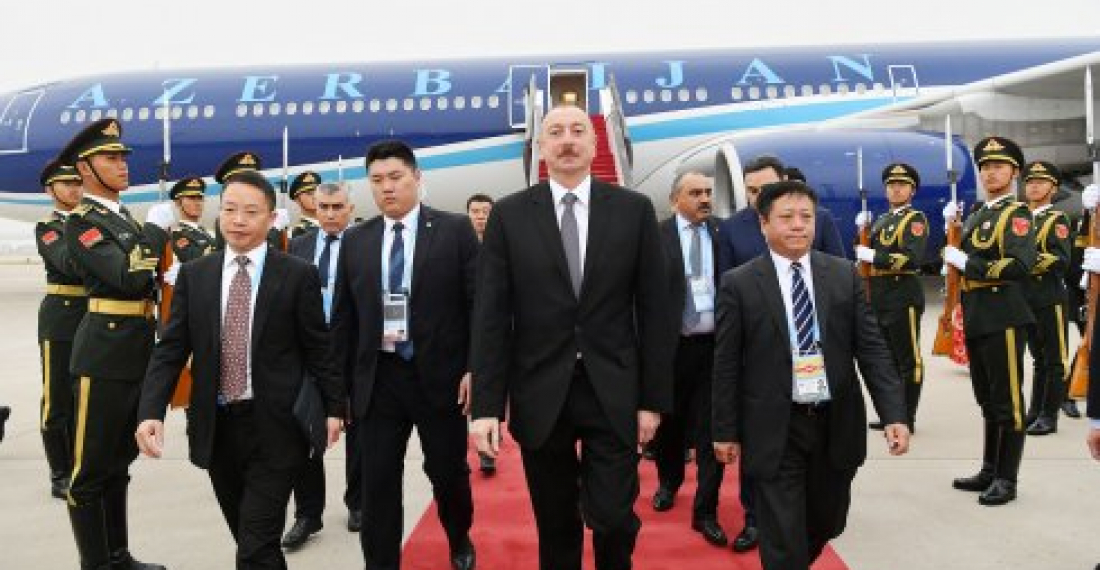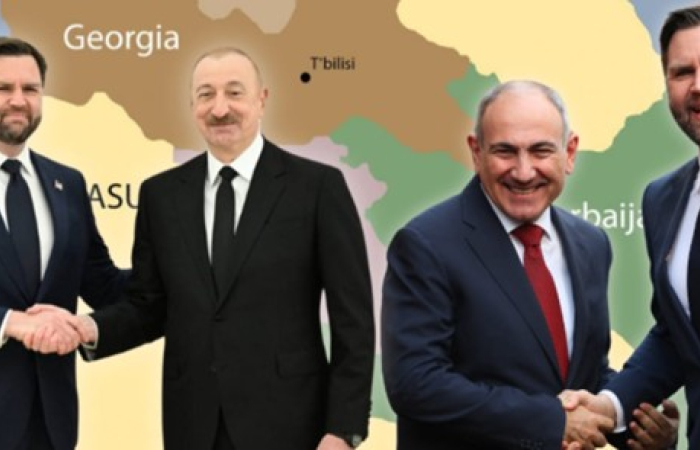Ilham Aliyev, the President of the Republic of Azerbaijan, arrived today (24 April) in China ahead of the second “One Belt One Road” international forum, taking place April 25-27. He was welcomed at the airport by the Chinese Vice Foreign Minister, Zhang Hanhui.
Aliyev has a number of talks arranged with Chinese officials and business leaders during his visit, meeting with the Director General of the China Electronics Technology Group Corporation (CETC) and the Chairman of the ZTE Corporation in Beijing earlier today. The Russian news outlet, RIA Novosti, has also announced that Aliyev shall meet with Russian President, Vladimir Putin, during the event on 26 April.
The ‘One Belt One Road’ initiative is a development strategy launched by the Chinese government in 2013, concentrating on infrastructure investment and development. The various projects involve a total of 124 countries and 29 international organisations.
source: commonspace.eu with agencies
photo: president.az media







